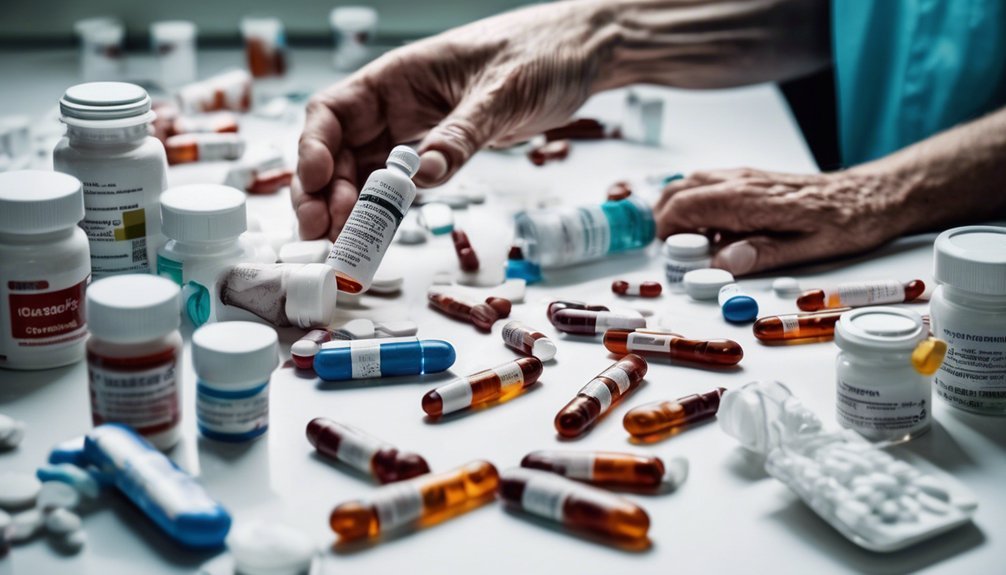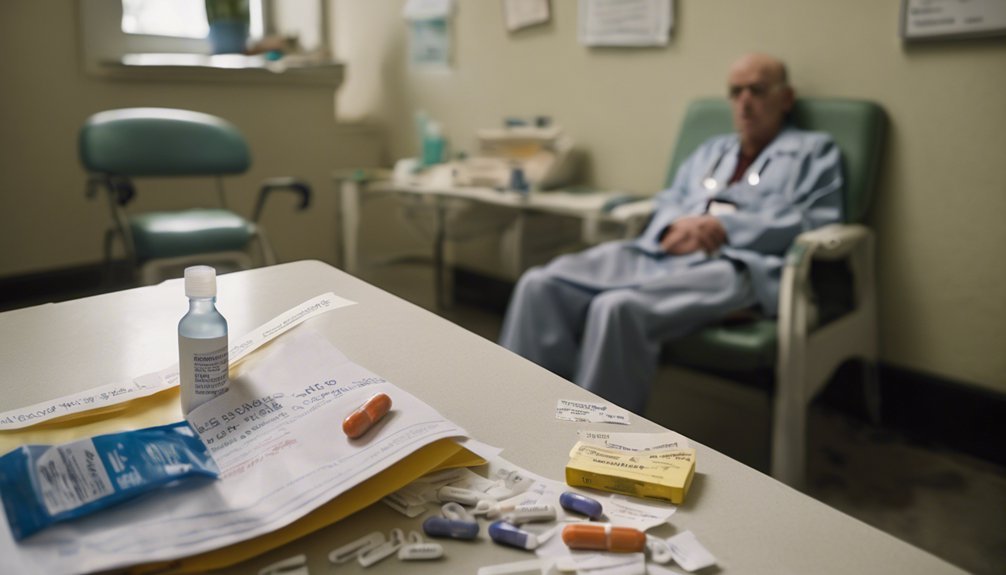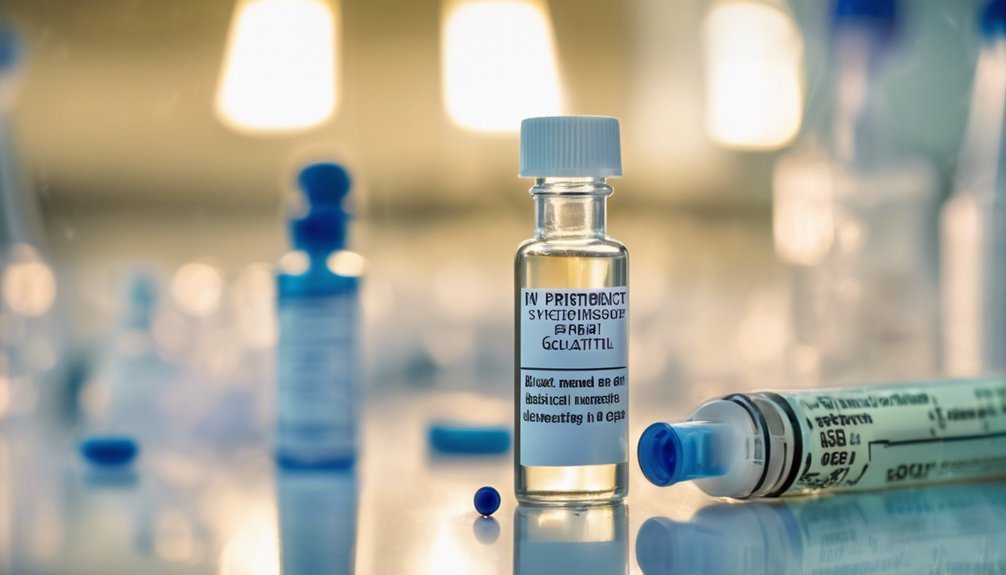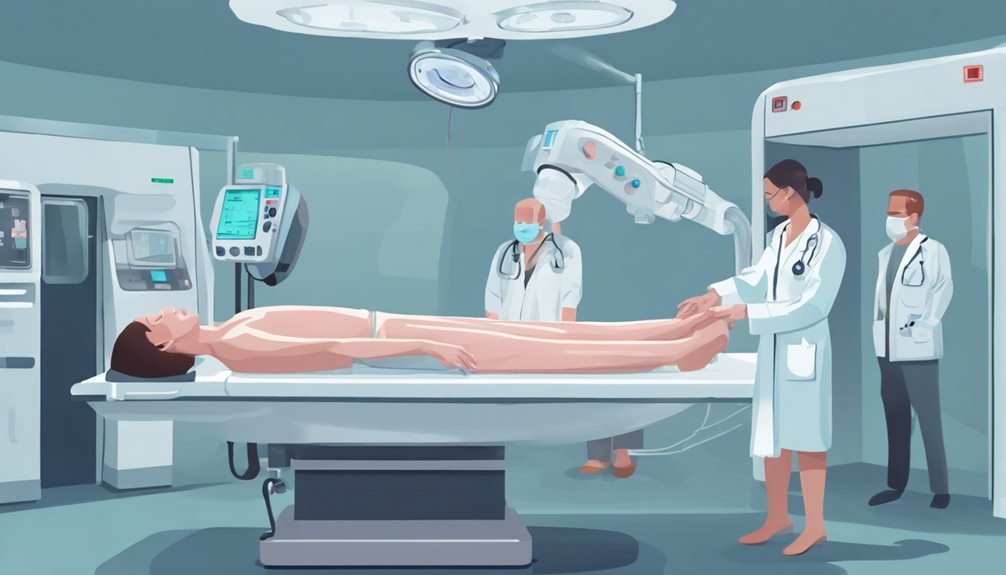You might have noticed an alarming trend among cancer patients: a growing number are self-medicating with antiparasitics. This practice raises serious concerns among oncologists about safety and efficacy. Many patients believe these drugs offer relief, but misinformation could lead to harmful consequences. As the situation evolves, understanding the implications of this trend becomes crucial. What are the potential risks, and how can patients navigate their treatment choices effectively?
Key Takeaways
- Oncologists are concerned about the increasing trend of cancer patients self-medicating with antiparasitics, potentially compromising their treatment outcomes.
- Self-medication can lead to dangerous side effects and drug interactions, complicating cancer therapies and affecting overall health.
- Misinformation about antiparasitics and cancer treatments can mislead patients, resulting in poor decision-making regarding their health.
- Open communication between patients and healthcare providers is essential to address self-medication risks and ensure safe treatment practices.
- Education and awareness initiatives are needed to empower patients while promoting adherence to evidence-based cancer treatments.
Understanding Antiparasitics and Their Intended Use

Antiparasitics are powerful medications designed to combat parasitic infections in humans and animals. You’ll find that these antiparasitic medications target various parasites, including worms, protozoa, and ectoparasites.
Understanding their intended use is crucial, especially when considering treatment guidelines established by health authorities. These guidelines dictate the appropriate selection and administration of antiparasitics, ensuring maximum efficacy while minimizing risks.
It’s important to recognize that misuse or self-medication can lead to complications, including resistance and adverse effects. For those dedicated to serving others, staying informed about the correct application of these treatments can make a significant difference in patient care.
Adhering to established protocols can help you contribute positively to the health and wellbeing of individuals affected by parasitic infections.
The Rise of Self-Medication Among Cancer Patients
As cancer patients seek relief from their symptoms, many turn to self-medication, often without consulting their healthcare providers. This trend raises significant concerns about treatment adherence and the potential risks involved.
Patients frequently feel isolated and overwhelmed, leading them to seek emotional support through alternative remedies they believe might help. Unfortunately, this path can divert attention from evidence-based treatments crucial for their recovery.
Feeling isolated, patients often turn to alternative remedies, risking their focus on essential evidence-based treatments for recovery.
While the desire for relief is understandable, it’s vital for patients to communicate openly with their oncologists. By fostering a collaborative relationship, you can ensure that your treatment plan remains effective and safe.
Prioritizing informed decisions over self-medication can enhance your overall well-being and strengthen adherence to prescribed therapies.
Misinformation and Its Impact on Patient Choices
Misinformation about cancer treatments can significantly influence patient choices, leading to potentially harmful decisions. Patients often encounter misleading information online, which can undermine their autonomy and decision-making process. This confusion can push patients toward unproven therapies, jeopardizing their health.
| Source of Information | Impact on Patient Choices |
|---|---|
| Social Media | Increased self-medication |
| Unverified Websites | Mistrust in professionals |
| Peer Recommendations | Misguided treatment paths |
| Celebrity Opinions | Adoption of risky practices |
Understanding the sources of this misleading information is crucial. As patients, it’s vital to critically evaluate what you read and consult healthcare professionals to ensure informed decisions about your treatment options.
Potential Risks of Unregulated Antiparasitic Use

The rise of unregulated antiparasitic use poses significant risks to patients already navigating the complexities of cancer treatments.
When you self-medicate, you may not be aware of the potential side effects these drugs can cause. Unregulated usage often leads to improper dosages, increasing the chance of adverse reactions.
Self-medication can lead to serious side effects and improper dosages, heightening the risk of harmful reactions.
It’s crucial to understand that these medications can interact negatively with other treatments, complicating your health further. Additionally, without proper medical guidance, you might overlook underlying conditions that require attention.
Your safety should come first, and relying on unverified sources for medication can endanger your well-being. Always consult healthcare professionals before making decisions about antiparasitics, ensuring your treatment plan is both safe and effective.
Prioritize informed choices for better health outcomes.
Interference With Cancer Treatments: a Growing Concern
While many patients seek relief through antiparasitics, their use can inadvertently interfere with essential cancer treatments. You may not realize that these medications can lead to harmful drug interactions, diminishing the efficacy of your prescribed therapies.
For example, certain antiparasitics might alter the metabolism of chemotherapy drugs, potentially reducing their effectiveness and compromising your treatment plan. This interference raises significant concerns among oncologists, who worry that self-medication could jeopardize patient outcomes.
As you consider using these medications, it’s crucial to understand the potential risks involved. Ensuring that any treatment you pursue aligns with your cancer care strategy is vital for maintaining treatment efficacy and safeguarding your health.
Staying informed empowers you to make choices that truly support your well-being.
The Role of Healthcare Providers in Patient Education
As patients navigate their cancer treatment, healthcare providers play a crucial role in ensuring they understand the complexities of their medications, including potential interactions with antiparasitics.
Effective patient communication is essential; it fosters trust and encourages patients to voice concerns about self-medication. By employing targeted education strategies, providers can inform patients about the risks associated with using antiparasitics alongside cancer therapies.
Effective communication cultivates trust, empowering patients to discuss self-medication risks with their healthcare providers.
Tools like informational brochures, one-on-one consultations, and workshops can enhance understanding and adherence to prescribed regimens. Additionally, providers should regularly assess patients’ knowledge and address misconceptions.
This proactive approach not only empowers patients but also helps mitigate the risks of adverse interactions, ultimately promoting safer treatment outcomes in oncology.
Legal and Ethical Implications of Self-Medication

Self-medication poses significant legal and ethical challenges, especially in oncology where patients might turn to antiparasitics without professional guidance.
You may find yourself navigating complex legal frameworks that vary by region, complicating access to these medications. The lack of oversight can lead to dangerous misuse or ineffective treatments, raising serious ethical dilemmas for both patients and healthcare providers.
When you self-medicate, you risk undermining established protocols designed to ensure safety and efficacy. Moreover, oncologists may face liability issues if patients suffer adverse effects from unsupervised usage.
It’s vital to recognize these implications and advocate for responsible medication practices, promoting an environment where patients feel empowered yet informed, ultimately protecting their health and well-being.
Alternative Therapies: What Patients Should Know
When exploring alternative therapies, it’s crucial to understand their potential benefits and risks alongside conventional treatments. Many patients turn to natural remedies, believing they offer safer or more effective options.
However, while some alternatives can complement standard care, others may interfere with prescribed medications or lead to adverse effects.
Patient awareness is key; it’s essential to research and consult healthcare professionals before starting any new therapy. Not all natural remedies are benign, and misinformation can be harmful.
Transparency about your interest in alternative therapies with your healthcare team fosters better decision-making.
Ultimately, a balanced approach that integrates evidence-based treatments with informed choices about alternatives can improve overall patient outcomes and well-being.
Strategies for Safe Medication Practices
Navigating the complexities of medication can be challenging, especially when considering alternative therapies alongside conventional treatments.
To ensure safe medication practices, you should adopt several strategies:
- Consult your healthcare provider before starting any new medication.
- Always adhere to prescribed safe dosages; never self-adjust.
- Keep a detailed medication log, including any alternative therapies.
- Engage in regular patient monitoring to track side effects and overall effectiveness.
- Educate yourself about potential interactions between prescribed medications and alternatives.
The Future of Patient Care in Oncology and Self-Medication

As the landscape of oncology continues to evolve, the role of self-medication in patient care is becoming increasingly significant. With the rise of personalized medicine, patients are empowered to take more control over their treatment options, often turning to self-medication.
This trend raises critical questions about safety, efficacy, and the potential for misuse of medications, particularly antiparasitics. While patient empowerment can enhance engagement in their care, it can also lead to unintended consequences if individuals lack adequate guidance from healthcare professionals.
The future of oncology care must balance this empowerment with robust education and support systems, ensuring that patients make informed choices while mitigating risks associated with self-medication. Collaboration between oncologists and patients is essential for safe, effective care.
Frequently Asked Questions
What Are the Most Common Antiparasitics Misused by Cancer Patients?
You’ll notice misuse trends in antiparasitics like ivermectin and albendazole among cancer patients. It’s crucial to enhance patient education, ensuring they understand proper medication use to prevent harmful consequences and promote safer treatment practices.
How Can Patients Verify the Safety of Antiparasitic Medications?
How can you ensure safety? Start by consulting experts; their guidance is invaluable. Then, explore reputable online resources for up-to-date information. Prioritizing verified knowledge protects your health and empowers you to make informed choices.
Are There Any Safe Home Remedies for Parasites?
When exploring natural treatments for parasites, you might consider herbal remedies like garlic, pumpkin seeds, or wormwood. However, it’s crucial you consult a healthcare professional before trying these to ensure they’re safe and effective for you.
What Should I Do if I Experience Side Effects From Self-Medication?
If you’re encountering unexpected reactions from your self-medication, prioritize side effects management by seeking a medication consultation. Engaging with a healthcare professional ensures you receive tailored guidance for your well-being and safety.
How Can Family Members Support Patients in Making Informed Medication Choices?
To support patients in making informed medication choices, you can provide emotional support and engage in medication education. Encourage discussions about options, help research reliable sources, and promote open communication with healthcare professionals for better decision-making.
Conclusion
As the tide of misinformation swells, cancer patients risk navigating treacherous waters with self-medication. The allure of antiparasitics may blind them to the lurking dangers, jeopardizing their health and treatment efficacy. Oncologists urge open dialogues and informed choices to steer clear of these pitfalls. By prioritizing evidence-based care and embracing safe medication practices, patients can anchor themselves in the safe harbor of effective treatment, ensuring their journey through cancer is as secure as possible.




